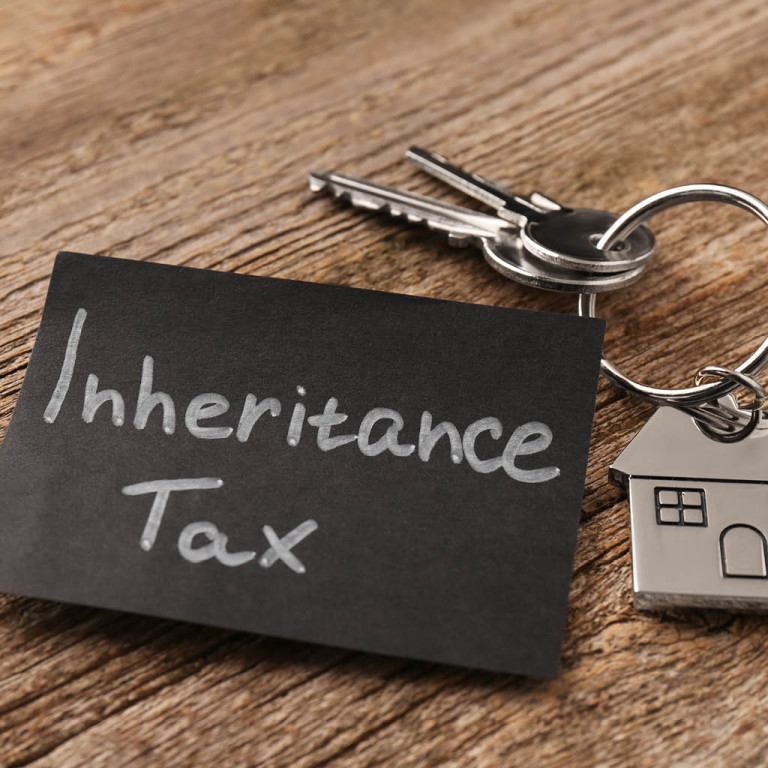After prolonged speculation, the Autumn Budget has indeed delivered some changes to the Inheritance Tax regime which will have a far-reaching impact on many estates. This insight is a more detailed breakdown of our previous post.
Inheritance Tax thresholds
Inheritance Tax is currently levied at 40% on the value of estates over £325,000 and with the Budget announcement this will remain frozen until April 2030. There has been no increase to this figure since 2009, which means that an individual will retain their own Inheritance Tax free threshold of £325,000.
No changes were made to spousal exemption rules, meaning that transfers between spouses and civil partners do not attract a charge to Inheritance Tax. Any unused threshold of the first spouse or civil partner can be transferred for use by the survivor.
In certain circumstances, an additional residence allowance can be claimed in estates valued at under £2,000,000 (with taper rules applying to those above £2,000,000) where a home is left to direct descendants. As such, with the right planning, a married couple can still pass down up to £1,000,000 to the next generation without paying Inheritance Tax.
Inheritance Tax and Pensions
A notable change relates to pensions. Previously, pension pots directed to a nominated beneficiary by the pension trustees were not included for calculating Inheritance Tax as the funds were deemed to pass outside of the estate. However, the Chancellor has announced that the Government will bring unused pension funds and death benefits payable from a pension into a person’s estate for Inheritance Tax purposes from 6 April 2027.
The thrust of the change is to ‘close the loophole’ in allowing individuals to pass significant assets down to generations without any charge to Inheritance Tax.
The Chancellor suggests that this will affect around 8% of estates each year but, on the face of it, this change may have the widest implications for the general public.
Practically speaking, this means that individuals who have an unused pension fund or death benefit will need to carefully consider where this places the value of their estate for Inheritance Tax purposes. Many who have previously considered themselves to be below the Inheritance Tax threshold may now find themselves likely to be subject to an Inheritance Tax charge. Further succession planning and consideration of potential avenues to reduce a charge from Inheritance Tax may be needed.
Agricultural Relief and Business Relief
Previously, most farms and business were fully protected from a charge to Inheritance Tax.
From the 6th April 2026, business and agricultural property eligible for 100% relief will be subject to a combined limit of £1M.
Business and agricultural assets over the £1M limit will be charged to Inheritance Tax at half the usual rate of Inheritance Tax. This places an effective 20% rate of Inheritance Tax on business and agricultural assets when their combined value is over £1M.
Business or agricultural assets which previously qualified for 50% relief will continue to do so. Those assets will not use the £1M threshold for fully relievable businesses or agricultural assets.
The £1M threshold will not be transferable between spouses. As a result, it may now be particularly unhelpful to pass business or agricultural assets to your spouse or civil partner on death.
AIM Shares
Investments held in the Alternative Investment Market previously attracted 100% relief from Inheritance Tax if they were held for more than 2 years. This relief has been drastically reduced and these holdings will now only attract a 50% relief from Inheritance Tax.
Domicile Rules
Until today, the complex domicile regime has determined whether, and the extent to which, an individual’s assets have been liable to Inheritance Tax in the UK. Under these rules, a person can either be domiciled in the UK because of their personal circumstances and history or can be deemed to be domiciled in the UK for Inheritance Tax purposes. A person was deemed domiciled in the UK if they had lived here for 15 of the past 20 years.
An individual who is domiciled in the UK or deemed domiciled in the UK is liable to Inheritance Tax on their worldwide assets. An individual who is not domiciled or deemed domiciled in the UK is only subject to Inheritance Tax on their UK based assets.
Under the new rules, the current domicile-based system will be replaced with a residence-based system. This system will make long-term UK residents liable for Inheritance Tax on their worldwide assets once they have been resident in the UK for at least 10 of the last 20 years. Those residents will then remain liable for UK Inheritance Tax for between 3 and 10 years after leaving the UK.
Investment/Modernisation of HMRC
The Government has also committed to investing £52,000,000 to digitalise the HMRC service from 2027-28, enabling digital Inheritance Tax returns, as opposed to the paper returns which remain in use currently. This would be a welcome modernisation, with other taxes (such as Income Tax) already able to be filed digitally.
The Government has also pledged to hire 5,000 new members of staff to bolster their ranks.
Late payment interest
Separately, it was also announced that interest rates on late payment of unpaid tax will be increased by 1.5 percent, taking effect from April 2025. It is presumed this will therefore apply to any Inheritance Tax owed (currently charged at 7.75%) although further confirmation from the Government is needed.
As a reminder, where Inheritance Tax is payable on an estate the time limit for payment is 6 months from the date of death before interest begins to accrue. This remains unchanged.
Seek advice
The detailed legal rules surrounding these changes will not be available in full until later this year, or even 2025. Advisors’ understanding of the implications of these proposed changes will develop over time and as the government releases further guidance or draft legislation.
Initial steps should be taken now, however, to understand the likely implications of these changes and steps which might be taken now to protect your position.
How Tozers Can Help
With Inheritance Tax changes on the horizon, now is the time to review your estate planning strategy. Our nationally recognised team is here to provide expert guidance on how to protect your assets and reduce potential Inheritance Tax liabilities. Whether you’re a business owner, farmer, or individual, we are dedicated to helping you navigate the complexities of tax planning.
Our services include:
- Inheritance Tax planning for individuals, business owners, and farmers
- Maximising available Inheritance Tax reliefs and exemptions
- Lifetime Inheritance Tax planning and gifting strategies
- Post-death Inheritance Tax arrangements, including deeds of variation
We will be working through the changes and will provide more detailed updates in the near future. In the meantime, if you have any specific queries, please get in touch with our specialists who will guide you through the changes so that you can make the most of your available options and stay one step ahead.




